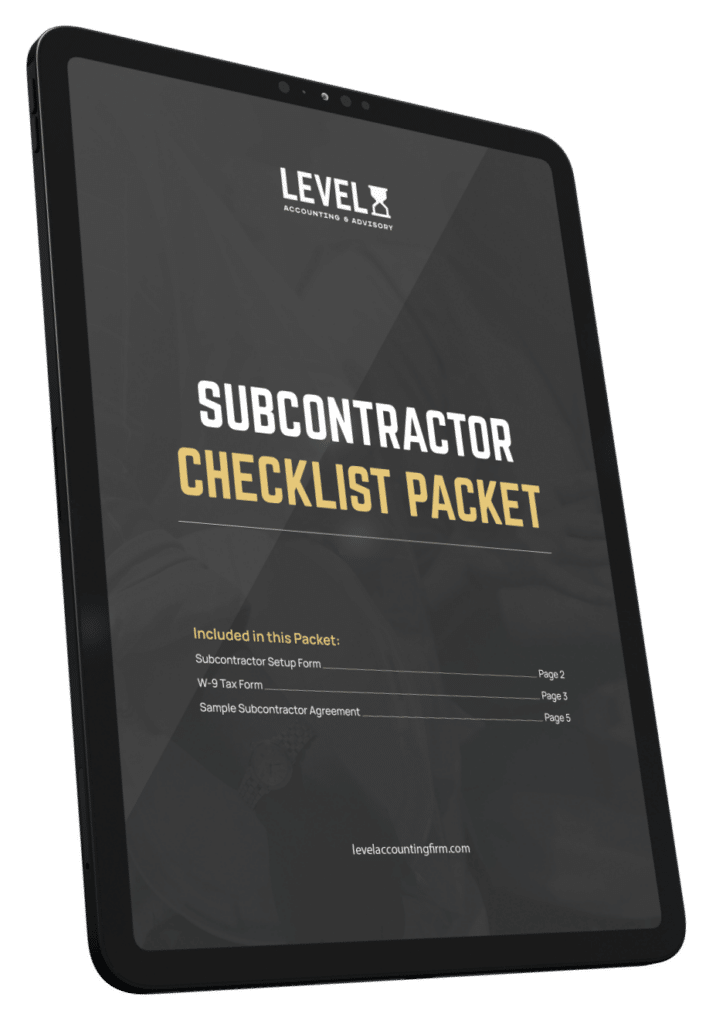15 Essential Tax Deductions all Independent Contractors Need to Know
As an independent contractor, understanding your available tax deductions is crucial for maximizing your take-home income. Before diving into the specific tax deductions for independent contractors available, let’s clarify what it means to be an independent contractor and how deductions work.
What is an Independent Contractor?

An independent contractor is a self-employed individual who provides services to other businesses or individuals. Unlike employees, contractors maintain control over how they complete their work, use their own tools and equipment, and are responsible for their own taxes and benefits. Some independent contractors may be operating their business under their social security number, while others may be operating as an LLC.
Read more about the difference between independent contractors and W2 employees here.
Understanding Tax Deductions for Independent Contractors
Tax deductions reduce your taxable income by subtracting qualifying business expenses from your gross earnings. For independent contractors, these deductions are essential tools for lowering your tax burden and maintaining a healthy profit margin.
Top 15 Tax Deductions for Independent Contractors
1. Home Office Deduction
If you use part of your home regularly and exclusively for business, you can deduct a portion of your rent/mortgage, utilities, and home maintenance costs. This can be calculated using either the simplified method ($5 per square foot) or the actual expense method.
2. Vehicle Expenses
Track your business mileage or actual vehicle expenses for client meetings, supply runs, and other business-related travel. You can choose between the standard mileage rate or actual expense method for maximum savings. For more information on how to deduct vehicle expenses, read this.
3. Self-Employment Tax Deduction for Independent Contractors
You can deduct half of your self-employment tax payments, which helps offset the additional tax burden of being self-employed.
4. Health Insurance Premiums
As a self-employed individual, you can deduct 100% of your health, dental, and long-term care insurance premiums for yourself, spouse, and dependents.
5. Professional Development Tax Deductions for Independent Contractors
Courses, workshops, certifications, and educational materials that maintain or improve your business skills are available as tax deductions for independent contractors.
6. Business Insurance Tax Deductions for Independent Contractors
Deduct premiums for business-related insurance, including liability coverage, professional insurance, and cyber security insurance.
7. Office Supplies and Equipment
From paper clips to computers, deduct the cost of supplies and equipment necessary for running your business. For more expensive office supplies and equipment tax deductions for independent contractors, you should be using the Section 179 Deduction.
8. Professional Services
Fees paid to lawyers, accountants, consultants, and other professionals for business purposes are deductible expenses.
9. Marketing and Advertising
Costs associated with promoting your business, including website expenses, business cards, and online advertising, can be deducted.
10. Travel Expenses
Business-related travel costs, including airfare, hotels, and 50% of meal expenses while traveling, are deductible.
11. Retirement Contributions
Contributions to SEP IRAs, Solo 401(k)s, or other qualified retirement plans can provide significant tax savings.
12. Phone and Internet
Deduct the business portion of your phone and internet expenses based on the percentage of business use.
13. Software and Subscriptions
Business-related software licenses, cloud services, and professional subscriptions are deductible expenses.
14. Contract Labor
Payments to subcontractors or freelancers who help with your business operations can be deducted.
15. Bank Fees and Interest
Fees for business bank accounts and interest paid on business loans or credit cards are deductible.
Strategic Tax Planning- Going Above & Beyond Tax Deductions for Independent Contractors
While these tax deductions for independent contractors provide immediate tax savings, strategic tax planning can offer even greater benefits. Tax planning isn’t just about tracking expenses—it’s about structuring your business operations to maximize tax efficiency throughout the year.
Some strategies to consider include:
- Timing your income and expenses strategically
- Choosing the right business structure
- Planning quarterly estimated tax payments
- Implementing retirement saving strategies
- Maintaining proper documentation for all deductions
Want a Free Guide on Secret Tax Strategies For Contractors? Click Here
Ready for Advanced Tax Strategies?
For independent contractors earning over $75,000 in net profit annually, more sophisticated tax planning opportunities become available. Level Accounting and Advisory specializes in developing comprehensive tax strategies for high-earning independent contractors.
Our team can help you:
- Identify additional tax-saving opportunities
- Structure your business for optimal tax efficiency
- Plan for long-term business growth
- Implement advanced retirement strategies
- Minimize your tax burden legally and ethically
Ready to take your tax strategy to the next level? Book a call with Level Accounting and Advisory today to explore how we can help you keep more of what you earn.
Remember: Tax laws and regulations can change frequently. Always consult with a qualified tax professional for advice specific to your situation.
Did this blog help you? Check out our other blogs below:
- 1099 vs W2: What Contractors Need to Know About Hiring
- BOI Reports: Your How To Guide to Filing
- Cash vs Accrual Accounting for Construction Businesses
- 1099s: Everything Contractors Need to Know
- Why Should Contractors Consider an S-Corp Election
- How to Pay Yourself as an S-Corp Owner
- 20 Tax Deductions for Contractors
- Cost of Small Business Accounting
- Section 179 Deduction: List of Tools & Vehicles that Qualify
- Write Off Your Vehicle For Taxes: How to Guide
- More can be found Here
Disclaimer: This article provides general information and should not be construed as tax, legal, or accounting advice. Always consult qualified professionals for guidance specific to your situation.


